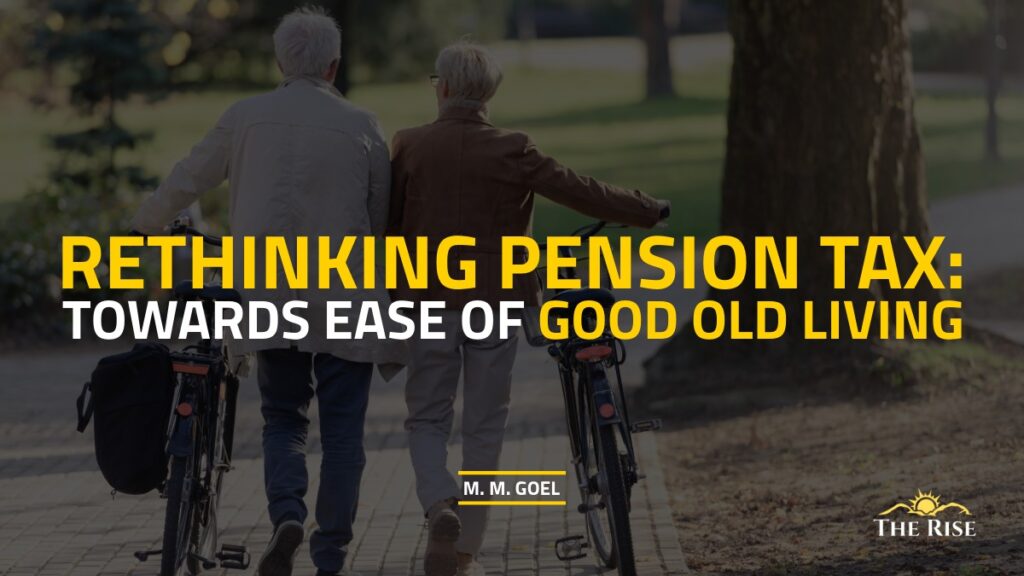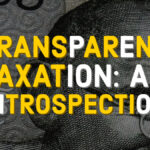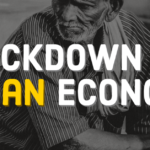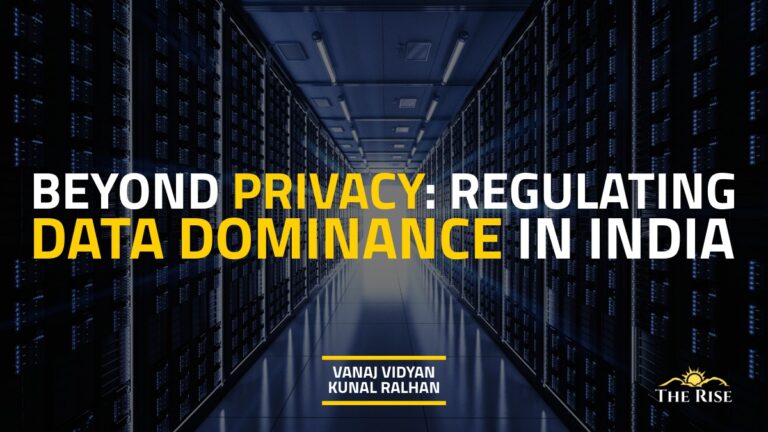A Viksit Bharat by 2047 cannot emerge on the foundation of neglecting its elders. Ensuring tax-free pensions, inflation protection, and expanded senior citizen savings schemes is not charity—it is justice. It is both a moral and economic necessity for a society that values its past while building its future.
The moral strength of a civilisation lies in how it treats its elderly. In Bharat, where reverence for the aged is deeply rooted in our cultural and spiritual ethos, the economic reality of senior citizens presents a disturbing contrast. The senior citizens of all shades and creeds deserve empathy and dignity through regular, inflation-indexed income—whether through pension or savings—free from the burden of taxation as a means of achieving what may rightly be called Ease of Good Old Living.
As a superannuated professor and proponent of the Needonomics School of Thought (NST), I firmly believe that retirement is truly wonderful only when one has enough to live with self-respect. The current practice of taxing pensions and Dearness Relief (DR) lacks both ethical and economic rationale. In the eyes of ethics, a pension is not “income” but deferred wages—a rightful return for lifelong service, not a new earning. To tax it is to tax the very dignity of labour once rendered to the nation.
Ethical and Economic Case against Taxing Pensions
Needonomics, or the economics of needs, is a human-centric philosophy that urges policymakers to distinguish between need and greed. It advocates for policies grounded in ethics, empathy, and sustainability, ensuring that economic justice prevails over fiscal opportunism. From this moral standpoint, taxing pensions and Dearness Relief is unjustifiable.
The concept of pension was never meant to be a luxury—it is rather social insurance earned through decades of contribution, loyalty, and productivity. To treat it as taxable income is not only ethically wrong but also administratively insensitive. Pensioners live on fixed incomes, often without avenues for additional earnings, while facing rising costs of healthcare, housing, and daily living. Inflation further erodes their limited purchasing power, compelling them to compromise on basic needs.
When governments tax pensions and dearness allowances, they effectively extract revenue from those least able to replenish it. This not only violates the spirit of economic justice but also contradicts the Gandhian principle of Antyodaya—prioritising the welfare of the weakest.
India’s Grim Reality: Global Pension Index and Domestic Shortcomings
The Global Pension Index 2025 by the Mercer CFA Institute placed India among the lowest-ranked countries in pension adequacy and sustainability. This ranking is not merely a number—it exposes a grim reality of our elderly struggling to survive amid inflation, inadequate social security, and policy neglect.
Further, the NITI Aayog paper (2024) titled “Senior Care Reforms in India: Reimagining the Senior Care Paradigm” reveals that 78 per cent of India’s elderly live without any pension support. This alarming statistic conveys the shallow level of commitment to social security in a nation aspiring to become Viksit Bharat by 2047.
These figures remind us that demographic advantage without ethical economic planning quickly becomes a demographic burden. The so-called demographic dividend is fast ceasing as the proportion of senior citizens rises sharply. According to Census projections, by 2050, nearly 20 per cent of Indians will be above 60 years of age. Yet, our pension systems, health infrastructure, and taxation policies remain largely unprepared for this transition.
Needonomics Vision for Dignified Ageing
Needonomics mandates that public policy should focus on need-based economics rather than greed-based governance. In the context of ageing, this means moving beyond token welfare and toward ethical economics that ensures dignity and security in old age.
- Tax-Free Pensions and Dearness Relief (DR): Pension and DR must be completely exempt from income tax. These are not sources of wealth creation but instruments of survival and self-respect. The taxation of these instruments defies both logic and morality.
- Inflation Indexing for Real Security: Regular revision of pension and DR linked to inflation is essential to protect the real purchasing power of retirees. Without inflation-indexed adjustments, the value of pensions diminishes steadily, pushing retirees toward dependency.
- Expansion of Senior Citizen Savings Schemes (SCSS): There is a strong case for removing the upper limit on deposits in the Senior Citizens’ Savings Scheme and allowing monthly interest payments to improve liquidity and cash flow for the elderly. This reform will provide immediate financial relief while encouraging savings.
- Universal Pension Coverage: A Needonomics-based pension policy should ensure that no senior citizen is left without financial protection. This requires expanding contributory and non-contributory pension schemes to cover informal sector workers, who form nearly 90 per cent of India’s workforce.
- Needo-Health and Happiness Index: Economic security alone is not sufficient for Ease of Good Old Living. We must also focus on needo-health and needo-happiness—concepts rooted in the holistic well-being of individuals. This includes preventive healthcare, emotional support, and community engagement for seniors.
- Digital and Financial Inclusion: Many senior citizens remain excluded from the digital economy. Needonomics envisions a Purpose-Driven Digital Bharat that empowers elders to access e-governance services, digital payments, and online healthcare with ease, safety, and literacy.
Beyond Fiscal Greed: Moral Compass for Policymakers
In the pursuit of fiscal consolidation, governments often treat pensions as a financial liability rather than a moral responsibility. Needonomics challenges this approach by asserting that the true wealth of a nation lies not in its GDP, but in the well-being of its people, especially its elders.
Economic policies should thus be guided by ethical restraint—what I term Needonomics of Governance. Policymakers must learn to distinguish between what is desirable and what is necessary. Taxing pensions may seem desirable for revenue, but it is unnecessary and unjust in the larger moral and social context.
Adopting a Needonomics-based fiscal policy would mean aligning taxation, expenditure, and welfare priorities with ethical imperatives. A humane taxation system should recognise the sacrifices of senior citizens, not penalise them.
Way Forward: From Rhetoric to Reform
To transform India’s ageing challenge into an opportunity for ethical development, the following policy reforms are crucial:
- Create a National Senior Citizens Economic Security Mission to coordinate all pension and welfare schemes across states and ministries.
- Introduce Needonomics-based budgeting, ensuring every rupee spent on senior care is viewed as an investment in social stability, not an expenditure.
- Encourage private and cooperative sector participation in elderly care—through tax incentives for senior-friendly housing, insurance, and healthcare.
- Institutionalise an Elderly Dignity Charter that codifies ethical and economic entitlements for retirees, ensuring accountability and compassion in governance.
Conclusion:
A Viksit Bharat by 2047 cannot emerge on the foundation of neglecting its elders. Ensuring tax-free pensions, inflation protection, and expanded senior citizen savings schemes is not charity—it is justice. It is both a moral and economic necessity for a society that values its past while building its future. Needonomics School of Thought envisions an India where economic growth is harmonised with ethical governance, and where the elderly live not in anxiety but in assurance. The time has come to reimagine ageing not as a burden but as a blessing—secured through empathy, ethics, and Needonomics. Let Bharat be known not just for its demographic dividend, but for its demographic dignity.
Disclaimer: The views expressed in this article are those of the author solely. TheRise.co.in neither endorses nor is responsible for them. Reproducing this content without permission is prohibited.
About the author
Prof. Madan Mohan Goel, Former Vice Chancellor and Propounder of Needonomics School of Thought.





































